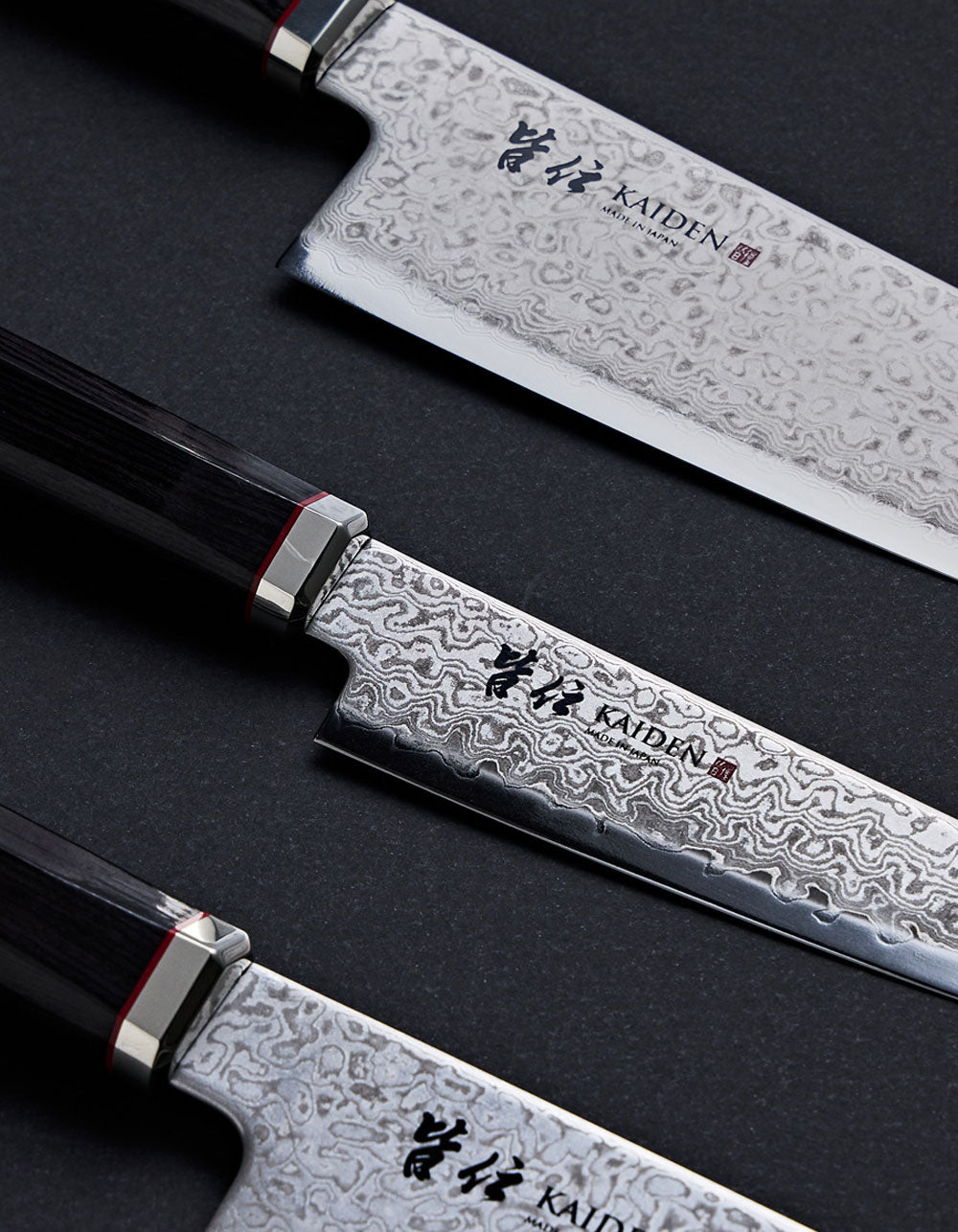Japanese Knife Care - Semi Stainless Knives - Stainless Clad
SEMI STAINLESS STEEL KNIVES
The core is made of semi-stainless steel which is MORE rust and tarnish resistant than carbon steel, but LESS rust and tarnish resistant than stainless steel. The most important knife care tip is to keep your knife dry and do not leave wet overnight.
- Never put in the dishwasher. The harsh chemicals and hot temperature will ruin the quality of the blade and deteriorate the handle.
- The knife is clad in stainless steel to protect against rust however the exposed semi stainless steel core (at the cutting edge) is susceptible to rust.
- A grey/black patina may form on the edge. This is totally normal for semi stainless steel and aids in protecting against rust.
- Acidic foods promote rust. If you do cut acidic foods rinse your knife under running water directly after use.
- Do not leave wet on the bench or the knife may rust. Dry thoroughly after hand washing and do not store unless fully dry. Use a paper towel to dry the blade instead of a teatowel as kitchen cloths tend to leave the blade slightly damp. Store away from humidity.
- Do not cut through bones, frozen foods, coconuts or extremely dense items like seeds, crackling, woody stalks.
- Always cut with a smooth action and never twist the blade, sideways pressure will damage the blade.
SHARPENING AND MAINTENANCE - WESTERN BEVELS
- Use Japanese waterstones to sharpen your knife, never on a hot grinder or belt sander. Find a reputable sharpener experienced in Japanese knives. Chef's Armoury offers a postal knife sharpening service.
- A honing steel can be used lightly in between sharpening on stones. Do not use a diamond or rough steel – we recommend a fine ceramic steel.
- DO NOT use a pull through sharpener of any description.
- Any rust should be removed immediately so it doesn't spread. Use rust cleaner for light rust or rust eraser or fine grit sandpaper for heavier rust.
EXTRA TIPS
- Japanese knives are easier to chip than thicker European knives so think before you chop.
- Don't cut directly on hard surfaces such as a benchtop; stainless steel sink; plate or chopping boards made from glass, ceramic, bamboo, corian and other hard substances. An endgrain chopping board or soft plastic chopping board is best.
- Remember your knives do have limitations and are not indestructible. Do not use your knife as a screwdriver, can opener, jimmy, hammer, oyster opener or chisel. (You can buy all of these tools at your local hardware store for much less).
- Store knives in the original box, a wooden sheath (saya) or on a knife magnet or knife block. Don't put a plastic or leather sheath on the blade as it will rust if any moisture is left on the knife.
- Don't let your damp blade rest against dissimilar metals for a period of time as it may encourage Galvanic corrosion.


